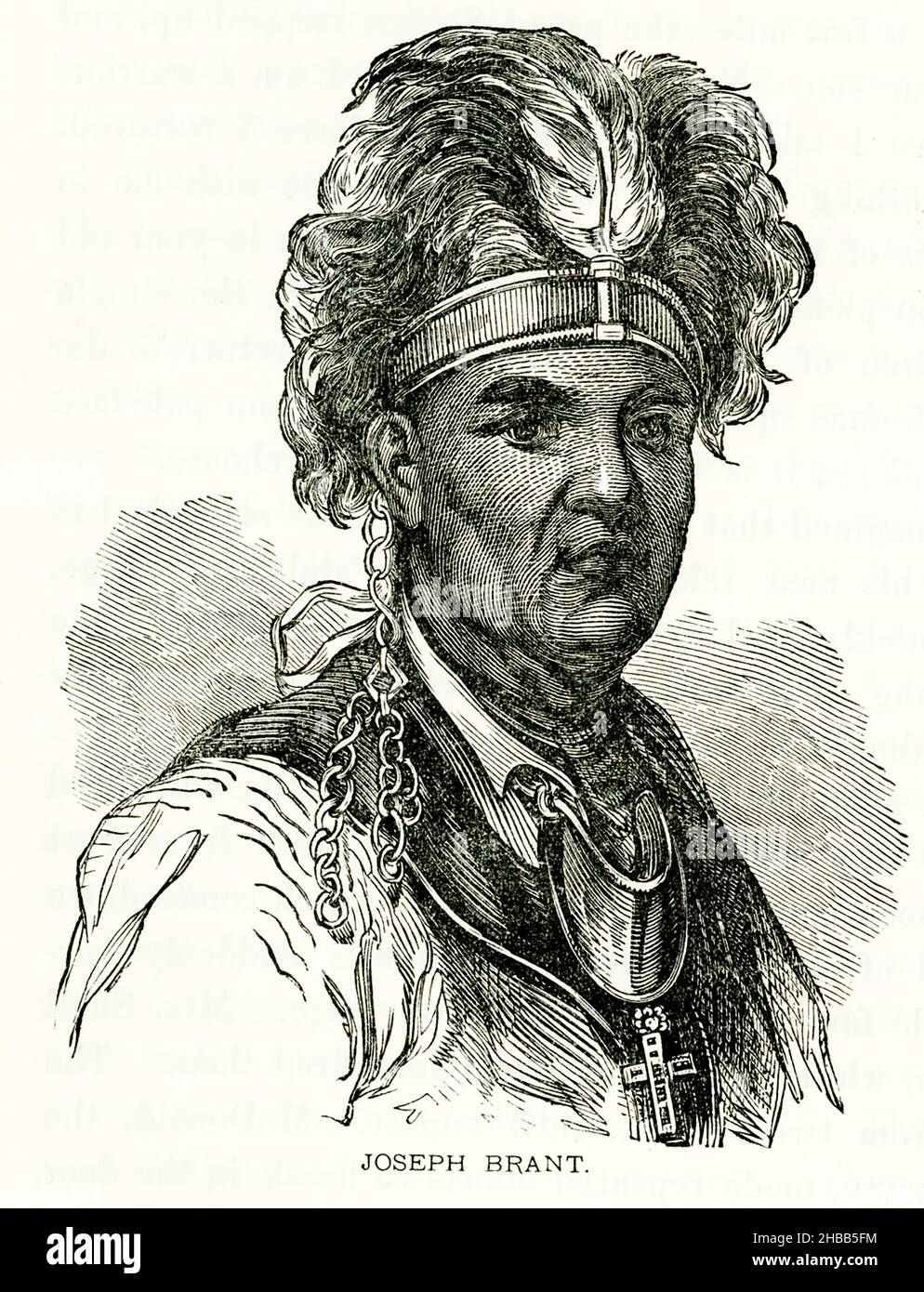Thayendanegea or Joseph Brant was a Mohawk military and political leader, based in present-day New York, who was closely associated with Great Britain during and after the American Revolution. In 1775, after the battles at Lexington and Concord, the Six Nations met to discuss their role in the burgeoning War for independence. While many advocated for neutrality, almost prophetically, Brant predicted that independence for the colonists meant that the natives across the North American continent would lose their land. Brant’s argument, along with Sir William Johnson’s influence, succeeded in conv

Image details
Contributor:
Ivy Close Images / Alamy Stock PhotoImage ID:
2HBB5FMFile size:
53 MB (2.2 MB Compressed download)Releases:
Model - no | Property - noDo I need a release?Dimensions:
3765 x 4920 px | 31.9 x 41.7 cm | 12.6 x 16.4 inches | 300dpiDate taken:
9 March 2020More information:
This image could have imperfections as it’s either historical or reportage.
Thayendanegea or Joseph Brant was a Mohawk military and political leader, based in present-day New York, who was closely associated with Great Britain during and after the American Revolution. In 1775, after the battles at Lexington and Concord, the Six Nations met to discuss their role in the burgeoning War for independence. While many advocated for neutrality, almost prophetically, Brant predicted that independence for the colonists meant that the natives across the North American continent would lose their land. Brant’s argument, along with Sir William Johnson’s influence, succeeded in convincing four of the six nations to fight for the British cause, the Mohawks, Onondagas, Cayugas, and the Senecas.